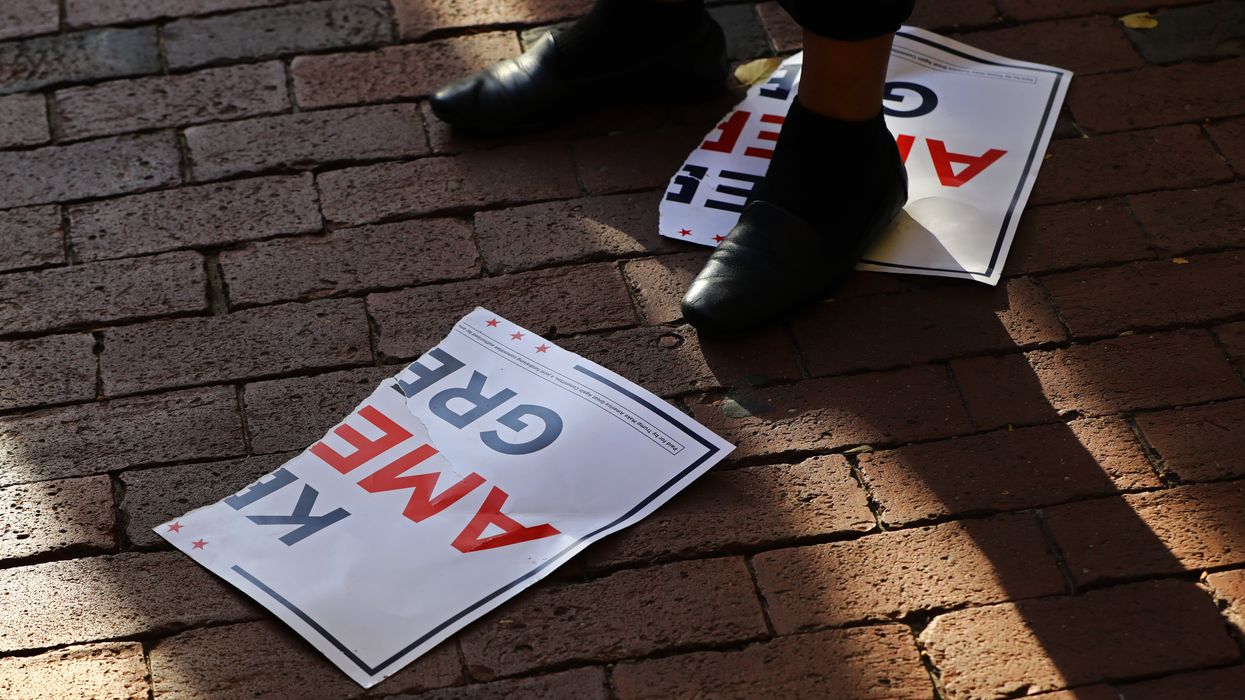In this ongoing series, Logis, a former Donald Trump supporter and founder of Perfect Our Union, answers our readers' questions about leaving the MAGA movement. Send your questions to AskRich@thefulcrum.us.
I spent more than half a decade meeting or communicating daily with fellow MAGA Americans. Those myriad exchanges and conversations were often with highly intelligent, educated, successful and accomplished professionals.
Attorneys. Doctors. Financial executives. Small-business owners. Former public sector workers. Ivy League graduates.
I left MAGA in the summer of 2022. I’m working to build a new community for those who have also left MAGA, or are having doubts about support for Trump and Trump-endorsed elected officials and candidates. Given my activism, I got to know many members of the community well and I want to dispel the myth that most MAGA Americans are unintelligent, uneducated and uncouth.
I’m withholding the writer’s name, but here’s a comment (unedited) a recent “Ask Rich” column received:
I'm wondering if any MAGA CLAN members have an IQ above 20? I'm sure it's going to take awhile to find one. I'll be waiting for your answer. The over/under is 6 months.
Do I understand, to some extent, why MAGA Americans and those in opposition provoke “us versus them” reciprocal acrimony (even if most who believe such comments don’t publicly state it)? Yes, because all of us, whether we care to admit it or not, are capable of disdaining those with whom we disagree, those we deem as threats to ourselves and our democracy. Impugning anyone not on our side is opprobrium that, at times, is easy to succumb to.
Millions — perhaps, billions — of words have been written and spoken about Trump voters being uncouth and of low intelligence. To those who say such things, I guarantee that by doing so you continue pushing them away from you, and strengthening the already-strong bond between Trump and his supporters.
Though I was responsible for my actions and rhetoric, I can also acknowledge that I allowed myself to be influenced by those who were well-intended – but, as I came to determine, mistaken.
If those with impassioned pro-Trump and anti-Trump feelings converse long enough, they’ll discover (maybe uncomfortably, at first) that there are a number of issues where they concur. I know, I know — the horror!
And in those exchanges, I’ll venture to say, the antipathy derived from “educated vs. uneducated” preconceptions will dissipate. None of us have come to our political conclusions and outcomes wholly on our own; this is actually great news, for it confirms that we can change our minds, or at least try to understand each other’s sincerely held beliefs. Attempting to see another’s perspective does not mean accepting it as correct; each of us is an amalgam of experiences, upbringings and a variety of inculcations. One doesn’t have to change one’s mind to reasonably compromise.
Our political climate would be made less antagonistic and divisive by de-stigmatizing the supposed “weakness” of changing our minds about issues, policies, candidates, etc. Reconsidering our previously held beliefs, or even just admitting a mistake, doesn’t indicate a lack of intelligence or good character; it reflects maturation and evolution. In fact, it takes a lot of mature thinking to question statements we hear ad infinitum rather than just accepting them as fact.
Progress in our history — the continued perfection of our Union — would have been impossible without the majority of Americans realizing that a modernization of some of the laws and opinions of yesteryear was mandatory.
What a smart approach, don’t you think?



















Trump & Hegseth gave Mark Kelly a huge 2028 gift